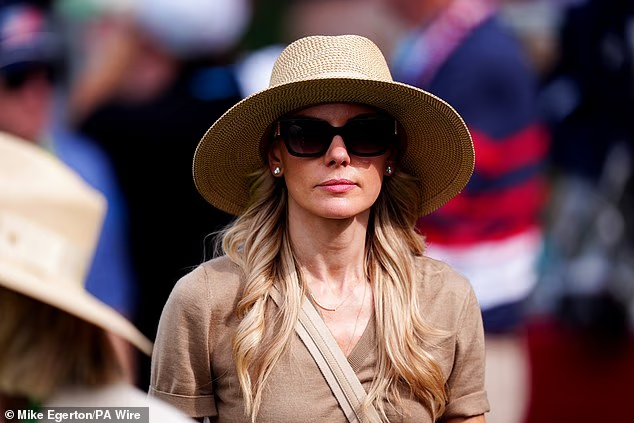Rory McIlroy’s Challenging Day at the Ryder Cup: Abuse and Resilience
Rory McIlroy’s recent experience at the Ryder Cup has sparked significant conversation within the golf community and among sports fans globally. The Northern Irish golfer faced a barrage of verbal abuse from American spectators, compelling his wife, Erica, to leave the course in tears. This incident not only reflects the high-pressure environment of international competition but also raises questions about sportsmanship, crowd behavior, and the impact of public scrutiny on athletes and their families.
Rory McIlroy’s Emotional Rollercoaster
During the Ryder Cup, Rory McIlroy was subjected to relentless heckling, with chants such as "f*** you, Rory" echoing around the course. The vitriol aimed at him included remarks about his personal life with Erica, which has seen its own ups and downs over the years. These abusive interactions left McIlroy feeling "drained" by the day’s end, despite Team Europe holding a commanding 11.5-4.5 lead amid the chaos.
Erica’s Heartbreaking Reaction
Erica Stoll, Rory’s wife, was visibly shaken by the crowd’s hostility. Reports indicate that she had "tears streaming down her face" as the couple walked off the course arm-in-arm. This emotional toll highlights that the pressures of competitive sports extend beyond the athlete themselves, impacting their loved ones directly. As a supportive partner, Erica’s distress underlines the human side of sports often overlooked by spectators.
The Toll of Verbal Abuse
The level of verbal abuse directed at McIlroy raises serious concerns about fan behavior. Hecklers took aim at his relationship with Erica, an issue that has garnered significant media attention, especially after the couple navigated a difficult period in their marriage. Observers noted that this scrutiny could have a substantial emotional impact not just on the athletes but also on their families present at such high-stress events.
Heightened Security Measures
In response to the disruptive fan behavior, tournament organizers implemented additional security measures around McIlroy and his teammates. At one point, McIlroy was so overwhelmed by the crowd’s taunts that he refused to take his shot, showcasing how hostile environments can disrupt the focus and performance of professional athletes. The organizers even displayed warnings about fan etiquette on screens around the venue, illustrating their commitment to fostering a respectful atmosphere.
The Response from Team Europe
Despite the hostility faced by McIlroy, Team Europe’s captain, Luke Donald, sensed that the charged atmosphere could motivate his players. "Things got tougher out there, and it fired them up even more," he remarked, emphasizing the resilience athletes often develop in the face of adversity. Donald’s perspective suggests that while crowd hostility can be debilitating, it may also provide an impetus for competitors to perform better under pressure.
The Role of Celebrity and Relationship Drama
As McIlroy dealt with the intense pressure, some fans resorted to personal attacks regarding his past relationship with former tennis star Caroline Wozniacki. Remarks like "How’s your divorce going?" afflict not only McIlroy but also illustrate a troubling trend in sports culture, where personal lives become fodder for public entertainment. Such behavior raises profound ethical concerns surrounding the treatment of athletes during competitions.
The Fallout of Hostile Crowds
McIlroy’s emotional responses to the taunting crowd, which included telling fans to "shut the f*** up," exemplify the strain he was under. While playful banter is part of the game, there’s a distinct line where sportsmanship gives way to meanness. Rory highlighted the importance of allowing players to perform without distractions during critical moments. Respecting athletes’ space during play is essential to maintaining the integrity of the game.
The Bigger Picture of Verbal Abuse in Sports
The Ryder Cup incident is not isolated; it reflects a wider problem regarding crowd behavior in sports. As fan expectations and competitive tensions rise, so does the likelihood of abusive behavior. Golf has traditionally prided itself on etiquette and respect, making these events particularly jarring when decorum is breached. Addressing this issue is essential for the sport to uphold its values and protect participants from emotional harm.
Moving Forward: The Need for Change
The Ryder Cup has always held high importance in the golfing calendar, but incidents like this demand a conversation about fostering a supportive environment for players and their families. Athletes are human beings facing intense pressure, and public support should begin at the stands. Governing bodies in sports must step up their efforts to discourage hostile behaviors and promote positive fan engagement.
Conclusion: The Heart of a Champion
As Rory McIlroy continues to navigate the highs and lows of professional golf, including the pressures that come with it, the support from his family remains crucial. The loyalty and resilience displayed by Erica during such tumultuous times showcase the bond they share. In the end, while sports will always have their challenges, it’s essential to remember that compassion and respect must prevail in the stands and among spectators, creating an environment where athletes can thrive without distracting, hurtful commentary.
This recent chapter in McIlroy’s journey reaffirms the challenges faced in the world of sports, serving as a reminder that beneath the records and accolades lie real human experiences filled with emotions, resilience, and the unwavering quest for success in the face of adversity.

